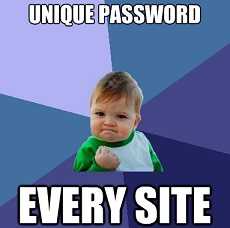Data Breaches Lead to 75% of American Changing Password
May 2, 2025
A survey by iProov finds that as a result of ongoing data breaches, 75% of Americans are getting used to changing their passwords. Good news is that it’s up 10% from previous years. Finding out that one of our accounts, or two or three, have been compromised by a corporate data security breach is unnerving at best. Feeling helpless about what happens to your PII (personally identifiable information) is a real concern knowing that organizations of all kinds keep it on file as part of doing business.
Other survey data from iProov shows more than 65% of respondents have changed their password at least twice because of a data breach. More good news is that 95% of respondents say they care about their data privacy. The not-so-good news is that 66% of those in the survey find password changes annoying, while 25% believe they have no control of their data when it comes to keeping it private. Data from Security Intelligence finds the average user has a 27.9% risk of having their data compromised.
The Answer is Easier Than You Think: Strong Password Use
Some breaches have been known to be hidden for a year or more, unfairly putting customers at risk of identity theft, fraud, email phishing, and more. Keeping safer from data breaches can be as simple as using strong and unique passwords for all online accounts. For some, it may be a pain to do, but compared to the alternative – trying to fix financial and identity theft – it’s a walk in the park we all should take. Below are ways to improve password use and avoid the attacks that can happen when PII is in the wrong hands.
Password Power
 Always use unique, strong, and long passwords with a combination of letters, numbers, and symbols and never reuse them for other accounts. Hackers can brute-force passwords, an automated way of trying all possible password combinations until the right one is found.
Always use unique, strong, and long passwords with a combination of letters, numbers, and symbols and never reuse them for other accounts. Hackers can brute-force passwords, an automated way of trying all possible password combinations until the right one is found.
- Don’t share passwords. Doing so makes them vulnerable should the wrong person end up with access to them. If you need to write passwords down, keep them in a safe place and away from prying eyes; but not on your internet-connected device.
- Don’t use personal information. Hackers have unlimited access to social media sites and other places PII can be found. Using the obvious for passwords like the name of the high school you attended, or your pet’s name is always risky and easy for hackers to find.
- Change passwords on a regular basis, especially for financial accounts. Using the same password for longer periods could put your information at risk if a data breach occurs.
- Consider using a password manager. They store usernames and passwords in encrypted form, keeping them safe from brute-force password attacks. Be sure to shop around, as password manager providers offer different services at differing prices. And remember that if your password manager is breached, so are your passwords.

